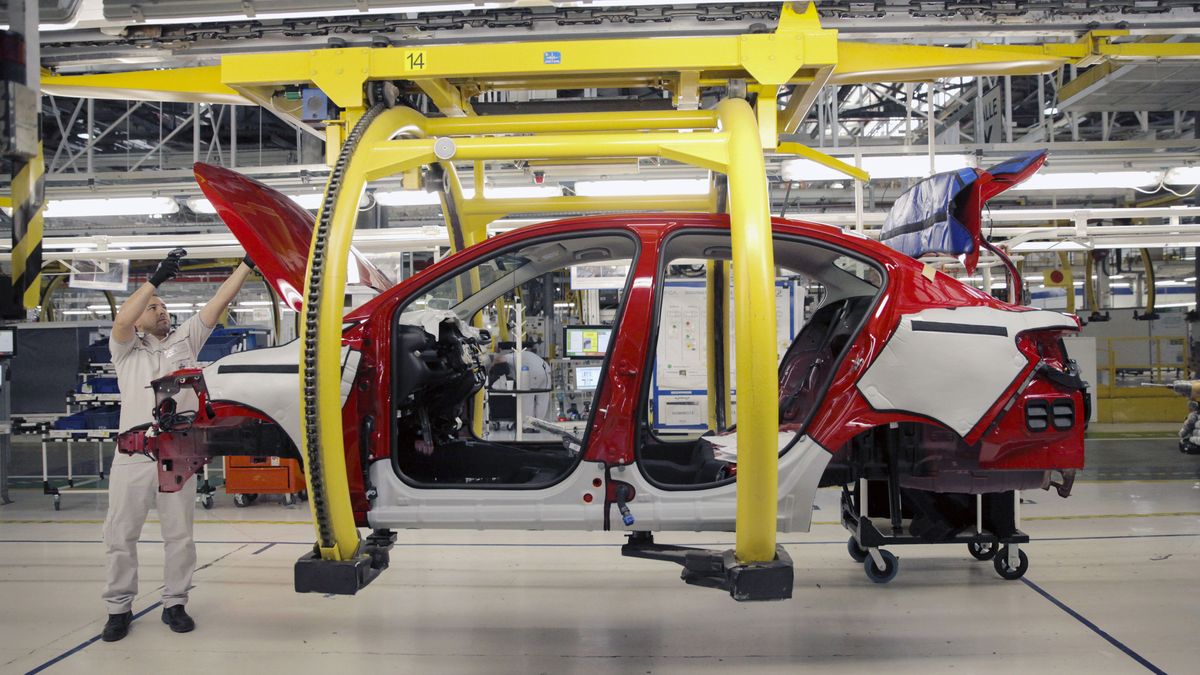
Commerce Secretary Pablo Levigne and his working pair, Julio Cordero, They participated in the annual meeting of the automotive value chain this week. Despite the severe crisis in operation affecting the sector, there have been no bombshell announcements. The authorities made three promises to industrialists: labor reform, decentralization and access to credit. Meanwhile, the head of the Brazilian Development Bank expects Ambit Lula's multi-million dollar plan for industry undermines local producers.
The crisis in the manufacturing sector worsens. There are sectors that have rallied for three or four months with double-digit declines in activity. The emerging panorama is complex: the internal market is shrinking, the effect of exchange competitiveness has been exhausted due to devaluation and Brazil is handing out multi-billion dollars. To promote its business policy.
Through this panorama, businessmen who have set up their factories in the country move between short-term anxiety and expectations that the deployment of macroeconomic and structural reforms will produce change in the medium term. That climate was drawn by four participants Automechanika Buenos Aires 2024, the annual meeting of the automotive industry Happened in the village.
They represented the government Trade and Labor Secretaries, Pablo Levigne and Julio Cordero. Both spoke before businessmen, but they did so very briefly. There is no detailed explanation of the situation, nor analysis of the strategic direction of the sector and much less predictions of “v” recovery. But still They made three promises: labor reform, demobilization and access to credit.
Three promises
Cordero, who spoke first, noted that labor laws must be “realistic” and “applicable.” Thus, he implicitly referred to labor reform: “There is a decision in the Ministry of Labor to build all the tools so that there will be more production and more work” said.
labor union The government's response was in the mega decree signed by President Javier Mili last December, but Blocked by the Judiciary. Although the path the proposal will take in Congress is still uncertain, the Radical Civic Union introduced a bill this week that mirrors DNU's content.
For its part, Levigne pointed out that the government is creating a new role for the trade and industry sector: “We don't want traders in the corridors of the Secretariat, we want them in companies, making them more efficient,” he summed up. The key word is debureacratization. Miley wants the state to move out of industrial policy, and it is clear that budget items for that purpose have not been passed.
Lula's plan
Meanwhile, Brazil, a major trading partner and competitor in the region, is promoting a mega-million dollar plan to attract investment. In an exclusive conversation with Ambito, Chairman, National Bank for Economic and Social Development, Aloizio Mercadante expected itE Lula will get 271 billion rais in credit, 21 billion in non-reimbursed contributions and 8 billion in capital investments until 2026..
Local manufacturers are aware of this and this is one of the main concerns. They see how every day the international media reports on a new investment announcement in a neighboring country. In Argentina, Orlando Ferres data shows a major decline in gross capital formation in the first three months of Javier Mili: -16.7%, -14.5% and -12.2% respectively.
Banco Nación and lowering rates
Returning to a meeting with businessmen, the Commerce Secretary said that next year the state will move away from the role of borrower and the financing will be handed over to the private sector. As Ambito learned, with the Fed's last rate cut, The nation decided to tax small and medium enterprises at an annual nominal rate of 42%.
Despite the abundance of credit at negative rates, there is little appetite for financing on the part of companies at this time. No sales, no production and installed capacity utilization is decreasing month on month. Most Popular Advertisement in Auto Parts Industry, Economy: Does it start or not?

“Introvert. Thinker. Problem solver. Evil beer specialist. Prone to fits of apathy. Social media expert. Award-winning food fanatic.”






More Stories
Two influencers drown after refusing to wear life jackets: “ruining selfies”
Uruguay 2024 election results: who won and when is the second round | Waiting to know whether there will be a runoff or not
Uruguay: Lacalle Pou leaves with his figure on the slopes | The Marcet and Asteziano scandals hit the right-wing ruler